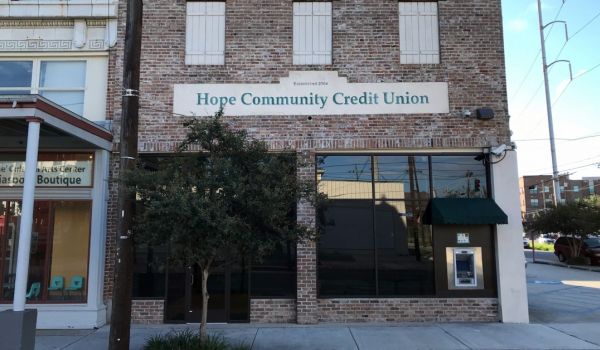On March 28, Vice President Kamala Harris announced an Office of Management and Budget policy to “Advance Governance, Innovation, and Risk Management in Federal Agencies’ Use of Artificial Intelligence.” It’s the first government-wide policy to “mitigate risks of artificial intelligence (AI) and harness its benefits.” Following President Biden’s Executive Order on AI, the new OMB policy directs the government to address the risks of AI, expand transparency around its use, advance responsible innovation, grow the AI workforce, and strengthen AI governance.
Of course, AI has its drawbacks. Facial recognition software has been used to punish protestors, AI image generators can exacerbate racial and gender-based stereotypes, and AI use can raise concerns about identity theft, to name a few. Nevertheless, the federal government has recognized AI’s potential as a governance tool, so long as we take risks to mitigate the harms.
Cities across the United States are on the frontlines to activate AI’s governance potential. Much like algorithms, a healthy democracy relies on continuous engagement and feedback to function effectively. Collaborative governance, for instance, requires engagement between everyday people and their decision makers and helps facilitate feedback mechanisms between people and governments.
Building a genuine multi-racial, multi-ethnic democracy involves a more collaborative and inclusive approach to digital tools. It is crucial to make these tools accessible to governments, and AI presents a promising solution to this challenge.
Over the last decade, cities and smaller towns across the country have transformed and improved government’s engagement with residents through ambitious use of data, visualization, and mapping. Boston has been using AI to over analyze data from the city’s 311 non-emergency service calls. AI can swiftly show which neighborhoods are receiving better services and easily create visualizations. This in turn helps reduce the burden for public officials who can focus on creating more equitable services and address discrepancies, instead of spending their time on the data analysis alone.
Recognizing the growing use of these technologies, in November 2023, San José organized a national effort, the GovAI coalition. Comprised of more than 400 public servants from 150 local governments, the coalition urges the responsible use of AI in the administration of public services. The coalition strives to “focus on supporting agencies as they implement their own AI governance programs.”
And cities worldwide are already adopting AI for everyday governance needs. Buenos Aires is integrating communication with residents through Boti, an AI chatbot accessible via WhatsApp. Over 5 million residents are using the chatbot everyday month, with some months upwards of 11 million users. Boti connects residents with city services such as bike sharing or social care programs or reports. Unlike other AI systems with a closed loop, Boti can connect externally to help residents with other government services. For more sensitive issues, such as domestic abuse, Boti can connect residents with a human operator. AI, in this context, offers residents a convenient means to efficiently engage with city resources and communicate with city employees.
Another example of AI improving people’s everyday lives is SomosUna, a partnership between the Inter American Development Bank and Next2MyLife, aims to address gender-based violence in Uruguay. In response to the rise in gender-based violence during and after Covid, this initiative aims to prevent violence through a network of support and “helpers” which includes 1) training 2) technology and 3) a community of volunteers. This initiative will leverage AI technology to enhance its support network, advancing preventative measures and providing immediate assistance.
While AI can foster engagement, local government officials recognize that they must pre-engage the public to determine the role that AI should play in civic life across diverse cities. This pre-engagement and education will inform the ethical standards and considerations against which AI will be assessed.
The EU’s ITHACA project, for example, explores the application of AI in civic participation and local governance. It aims to develop and test a human-centric AI platform for online discussions. The project also hopes to assess AI’s ability to enhance resident participation in local governance, mitigate the adverse effects of AI, and empower citizens’ knowledge about AI models. And platforms such as City AI Connect, developed by Johns Hopkins University, provide cities with opportunities to explore and learn about the use of generative AI to enhance public programs
Educational initiatives aimed at fostering digital literacy and civic education are vital to equip residents and city leaders with the necessary tools and knowledge to engage meaningfully with AI-powered systems. To foster AI’s transformative potential for building inclusive, equitable, and resilient communities, local leaders must act with transparency, accountability, and collaboration with residents.
AI will enable agencies to make informed predictions about emerging trends, such as the effects of climate change. And perhaps most importantly, it will help mayors, city council members, and state and federal officials gain a better and more nuanced understanding of public opinion and engage a broader range of residents in public decisions, not just the most vocal. While the future of AI holds both risks and benefits, by using it meaningfully and thoughtfully to enhance democratic engagement and promote transparency, cities can foster a more participatory and responsive form of governance.
Dr. Hollie Russon Gilman is a Senior Fellow at New America's Political Reform Program and an Affiliate Fellow at Harvard's Ash Center. She is the author of “Democracy Reinvented: Participatory Budgeting and Civic Innovation in America” and most recently co-author of “Civic Power: Rebuilding American Democracy in an Era of Crisis.“ She served as Open Government and Innovation Advisor in the White House Office of Science and Technology Policy.
Sarah Jacob is a Program Associate for New America's Political Reform Program. Her Jacob's professional experience ranges from local civic engagement to emerging technology ethics. She has worked on local student lobbying efforts, as well as NSF projects concerning data privacy and online disinformation. Previously, Jacob worked on NDI's Democracy and Technology team, where she co-authored a report on the quality of information online in Nigeria and worked on internet freedom issues and generative AI policy. Jacob holds a bachelor's degree in International Studies from the University of Washington.

















Add to the Discussion
Next City sustaining members can comment on our stories. Keep the discussion going! Join our community of engaged members by donating today.
Already a sustaining member? Login here.